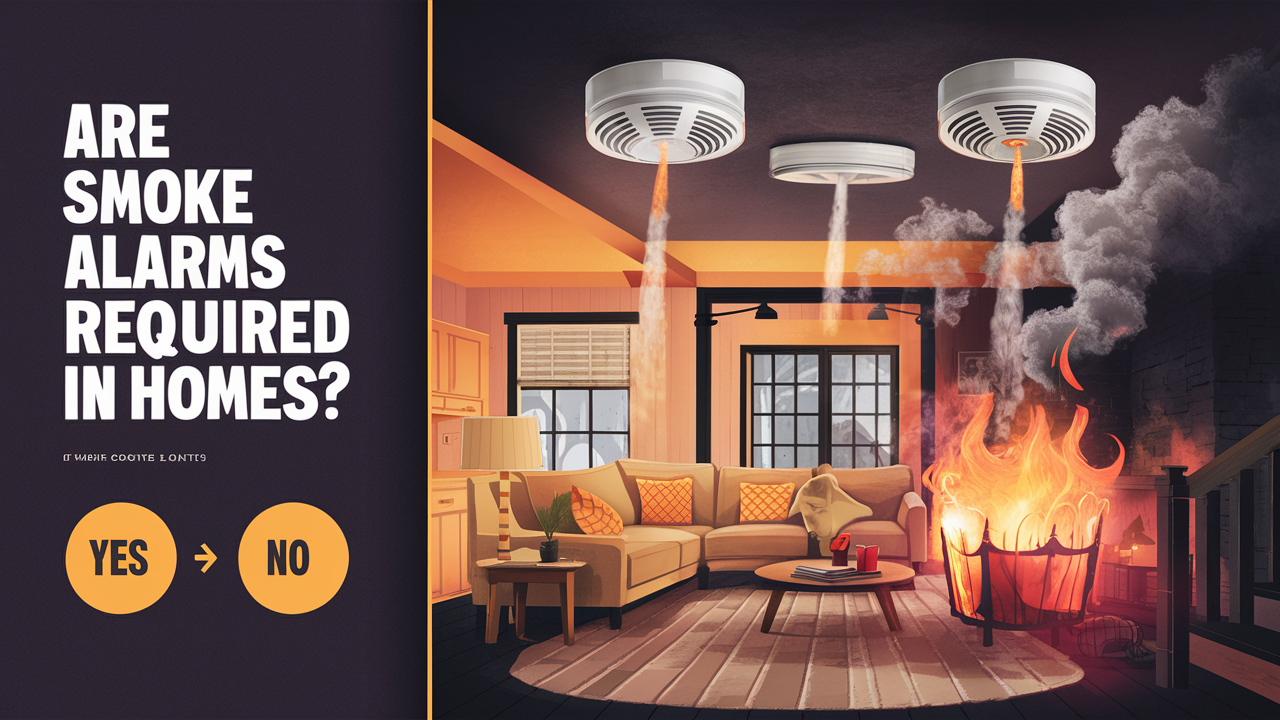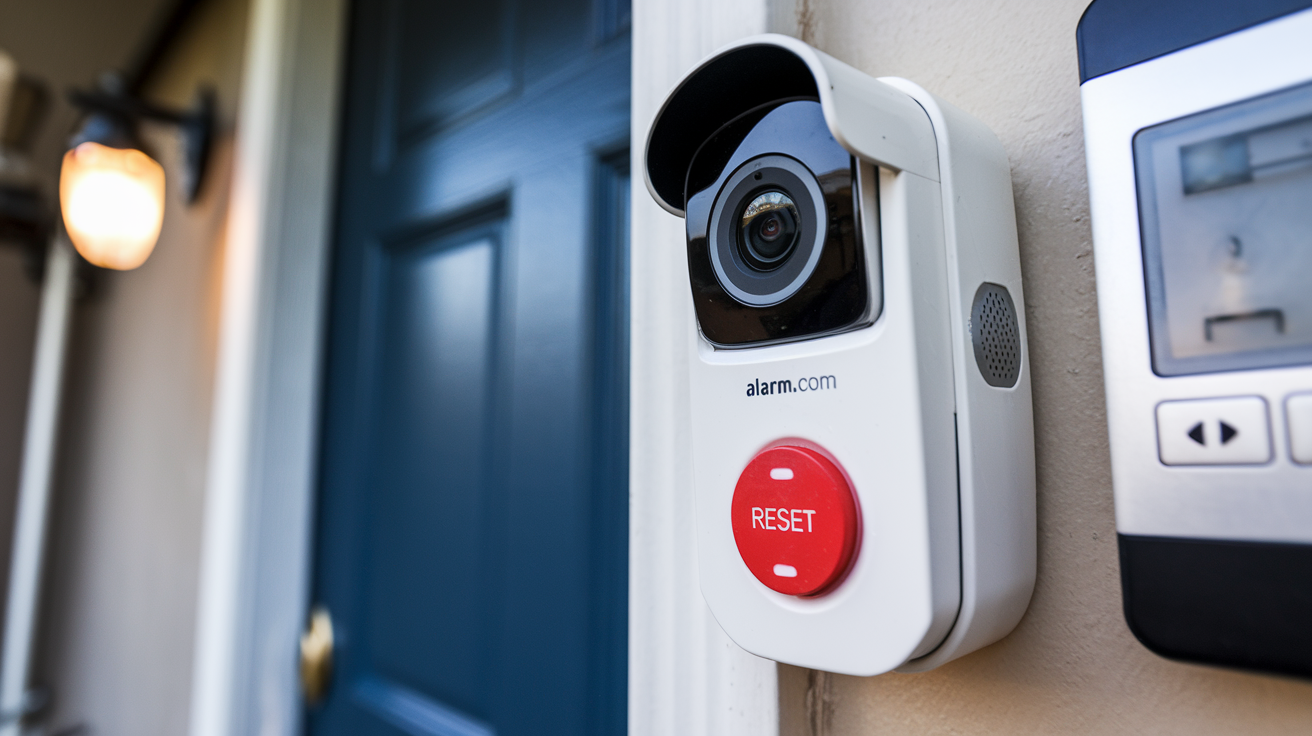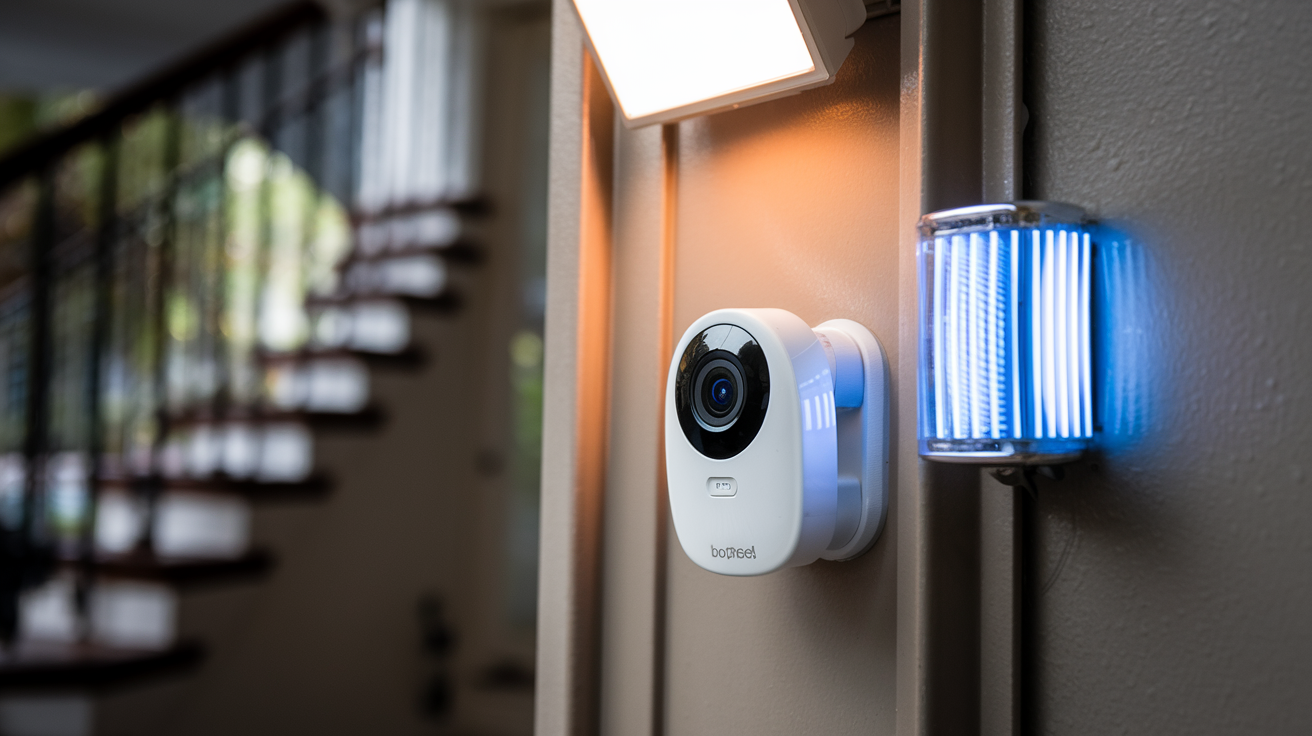Devices called smoke alarms recognize smoke and sound a warning to home occupants about a fire. Their great responsibility is sounding an alert that lets people flee a home on fire. Many countries mandate smoke alarms as they are included in construction regulations and fire safety rules. Still, these criteria may vary based on your state of residence in the United States or the nation from which you come from. The author talks about smoke alarm rules and regulations in many states of America.
Fire Alarm Laws by State
As of right now, no federal legislation in the United States mandates installing smoke alarms in households. Nonetheless, the regulation about the placement of smoke detectors is left to the particular states and local authorities. As of right now, 48 states have legislation requiring smoke alarms in multi-family buildings as well as in newly built single-family houses and flats. Regarding the current constructions, the guidelines are not as clear-cut and could vary greatly. A few states permit smoke alarms exclusively in certain kinds of rental or multiple-dwelling apartment complexes. Furthermore considered are the quantity, location, and kind of power source. State-Based Smoke Alarm Requirements
Source: Smoke alarms. In the United States of America, there is no government mandate for smoke alarms in homes or any other kind of structure. Every state and municipal government, instead, has rules controlling the use of smoke detectors. At least thirty-two states have passed laws requiring the installation of smoke alarms in all new buildings of one- and two-family homes, flats, and multiple-dwelling units. Still, the regulations concerning current systems remain more flexible. Some states require the installation of smoke alarms only in certain types of rentals or multi-unit buildings. And the power source, number, and positioning.
Some of the alarms can vary from one local regulation to another. Residents of homes and apartments should consult the current laws in their state to determine whether the use of smoke alarms is required in their house and where they should be installed if it is.
Smoke Alarm Requirements for New Construction
Every state today must have smoke alarms in the new constructions at the time of construction. The International Residential Code IRC, which has been adopted in most states either statewide or locally, requires the following provisions for smoke alarms on new construction;
- In each bedroom
- Away from each separate sleeping area, like a hallway
- On every level of the home, including basements and habitable attics
The IRC implies that in new construction, all smoke alarms must be powered primarily by the building’s electrical system. They must also include battery backup in the event of electrical failure which is paramount in most modern buildings. That means interconnected smoke alarms are needed where if one starts ringing, all the others start ringing as well. This assists in waking people in all parts of the house. Further, most of the authorities have laid down certain conditions concerning the installation of smoke alarms; one of them is that the alarms must be interconnected with the electrical system of the house. Wireless alarms are also increasingly being incorporated into building codes as the technology improves.
Smoke Alarm Requirements for Existing Homes
Code provisions regarding smoke alarm installation are typically less rigorous for existing homes than for newly constructed ones. Many state and local ordinances simply mandate nonhardwired smoke alarms in existing homes but not hardwired ones. Connection of the alarms is not mandatory in all cases either. It is recommended that the homeowners contact the building department or the fire marshal of their area to know the legal requirements regarding the existing house in regards to smoke alarms.
Overall, the current high-rise apartment buildings are limited more to the use of smoke detectors as compared to houses or low-rise rentals. For instance, a high-rise building that has undergone retrofitting may require a highly sophisticated alarm system linked to the central fire alarm panel. The specific requirements regarding smoke alarms can be found in the local high-rise fire codes. According to the National Fire Protection Association NFPA, smoke alarms should be installed in all apartments and other multi-family living situations although there are no requirements in place for their installation throughout the US.
About Smoke Alarm for Rental Properties
Smoking ordinances in most states require that landlords install smoke alarms in rental units before occupancy. However, the specific demands vary from state to state and even city to city, depending on the specific definition adopted by the state and/or municipal law. The rules for the quantity, placement, type, and power source of required smoke alarms can also differ.
There are several typical requirements for the rental smoke alarm as follows:
- Smoke alarms in every story of the unit
- Fire alarms within each bedroom and smoke detectors
- Wired smoke alarms to go off at the same time
- 10-year non-removable lithium batteries
As for the maintenance of rental smoke alarms, the responsibility also differs as well. At other times, the tenants are the ones who are expected to clean the devices. Other areas require that the landlord should be the one to conduct the test and replace the smoke alarms that have expired. Look at the state laws governing the relationship between a tenant and a landlord to find out who is responsible for installing and maintaining the smoke alarms.
Smoke Alarm Standards for Home Transactions
Some of the local ordinances require that single-family homes should have operational smoke alarms before the sale or transfer of the deed. All the states that have these laws have laid down the mandatory requirement that there must be at least one smoke alarm on each floor of the house, including the basement. They have to be situated close to sleeping rooms. It is usually regulated by the state or local real estate commission. If the smoke alarms are older than 10 years, they will generally require replacement before closing.
Potential homeowners should exercise their right to confirm whether the house they are eyeing has functional smoke alarms or not. Demand from the seller proof that the smoke alarms conform to all the local ordinances. It is also beneficial to try the devices personally during the site visit to check how they feel in use. Identifying expired smoke alarms or improper installation could be bargaining chips for the buyers in the negotiation process.
In Summary
Working smoke alarms, properly installed, offer an important early-warning system for fire. It provides additional time for the occupants of the building to evacuate safely in case of fire or smoke breakout. Certain regulations on the placement and usage of smoke alarms vary from state to municipality. Every homeowner, landlord, tenant, and anyone who might sell or buy a house should check the specific statutes of the particular building location. Trust me, when it comes to smoke alarms, it is always important to follow the local smoke alarm regulations literally if one is to survive when there is an eventual fire outbreak. Do not undermine the importance of smoke alarm compliance.
Protect your home today with ADT’s top-rated security solutions!
Call now at +1 877-470-7879 to get a free consultation and find out how you can secure your home with the best in the business. Don’t wait—ensure your peace of mind with ADT!







